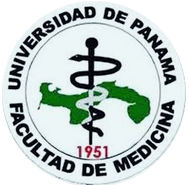Trabajo en equipo en el quehacer científico en nuestra región
[Teamwork in scientific work in our region]Cesar Cuero1
1. Editor en Jefe.
Descargas
Resumen
El grupo de las llamadas enfermedades raras, son denominadas así porque afectan a un número reducido de personas al compararlas con la población general. Hay que tomar en cuenta, que una enfermedad puede ser rara en una región del mundo y ser común en otra. Su número va en aumento, y en la actualidad anda por los siete mil.
A la par de las reconocidas enfermedades raras, encontramos otras que, si bien no son comunes, su incidencia está por encima de las llamadas enfermedades raras. Este es el caso de la enfermedad de Huntington, una afección de tipo hereditario, con baja frecuencia, que ataca las células nerviosas del cerebro, provocando una progresiva degradación de las mismas que se traduce en una afectación en las capacidades funcionales del paciente, llevando a alteraciones del movimiento corporal, del pensamiento y de la conducta.
Lamentablemente, la alteración neurológica antes descrita, que ocasiona esta enfermedad, se presenta con más frecuencia en la gente de edad joven y productiva, que tendrá que llevar esta afectación por el resto de su vida.
Vale la pena destacar que cuando se quiere profundizar en el conocimiento de enfermedades poco frecuentes como la antes mencionada, se apela a la consulta y trabajo en equipo, entre los médicos especialistas, como una manera práctica y efectiva de recoger el mayor número de casos posible. En la patología que nos ocupa, se invitó a participar a todos los neurólogos de Panamá, a través de la Asociación Nacional que los agrupa, asegurándose con ello la mayor cantidad de casos posibles que estaban diseminados en las diferentes entidades de salud que cuentan con este tipo de especialistas. Este accionar dio un fruto permanente, al crearse el Registro Nacional de Enfermedad de Huntington, que continuará captando nuevos casos.
Esta forma de accionar, de trabajo conjunto a nivel nacional, también tiene sus antecedentes en la Región Centroamericana y del Caribe, con esta misma especialidad, ya que liderizada por neurólogos panameños, se han podido llevar a cabo trabajos de investigación en los que se conjunta el esfuerzo de colegas de varios países, lo que conlleva un avance de la ciencia y una proyección ya no regional sino mundial, del quehacer científico del área.
En una región donde la investigación es de por si difícil por varias razones y por ende escaza; estrategias como esta de unir esfuerzos más allá de las fronteras nacionales, representa una herramienta por demás muy valiosa, que muestra que, si se puede llevar a la realidad el trabajo disciplinado en equipo, con una coordinación efectiva, que garantiza el llegar a los resultados deseados.
Abstract
The group of so-called rare diseases are so called because they affect a small number of people when compared to the general population. It must be taken into account that a disease can be rare in one region of the world and common in another. Their number is increasing and is currently around seven thousand.
Along with the recognized rare diseases, we find others that, although they are not common, their incidence is above the so-called rare diseases. This is the case of Huntington's disease, a hereditary condition, with low frequency, which attacks the nerve cells of the brain, causing a progressive degradation of the same that results in an affectation in the functional capacities of the patient, leading to alterations in body movement, thinking and behavior.
Unfortunately, the neurological alteration described above, which causes this disease, occurs more frequently in young and productive people, who will have to carry this affectation for the rest of their lives.
It is worth noting that when we want to deepen the knowledge of rare diseases such as the aforementioned, we appeal to consultation and teamwork among medical specialists as a practical and effective way to collect as many cases as possible. In the pathology that concerns us, all neurologists in Panama were invited to participate, through the National Association that groups them, thus ensuring the largest possible number of cases that were scattered in the different health entities that have this type of specialists. This action bore permanent fruit with the creation of the National Registry of Huntington's Disease, which will continue to capture new cases.
This form of action, of joint work at a national level, also has its antecedents in the Central American and Caribbean Region, with this same specialty, since led by Panamanian neurologists, it has been possible to carry out research work in which the efforts of colleagues from several countries are combined, which leads to an advance in science and a projection, not regional but worldwide, of the scientific work in the area.
In a region where research is difficult for several reasons and therefore scarce, strategies such as this one to join efforts beyond national borders, represents a very valuable tool that shows that disciplined team work can be carried out with effective coordination, which guarantees the desired results.
Licencia
Derechos de autor 2022 Infomedic Intl.Derechos autoriales y de reproducibilidad. La Revista Médica de Panama es un ente académico, sin fines de lucro, que forma parte de la Academia Panameña de Medicina y Cirugía. Sus publicaciones son de tipo acceso gratuito de su contenido para uso individual y académico, sin restricción. Los derechos autoriales de cada artículo son retenidos por sus autores. Al Publicar en la Revista, el autor otorga Licencia permanente, exclusiva, e irrevocable a la Sociedad para la edición del manuscrito, y otorga a la empresa editorial, Infomedic International Licencia de uso de distribución, indexación y comercial exclusiva, permanente e irrevocable de su contenido y para la generación de productos y servicios derivados del mismo. En caso que el autor obtenga la licencia CC BY, el artículo y sus derivados son de libre acceso y distribución.









